Caffeine Before Running: What You Should Know
- November 6, 2020
- Last Updated: May 2, 2023
- 3 Comments
- Sports Nutrition
Many morning runners pair coffee and running for their morning routine, and caffeine before running may feel like a necessity. This post will detail the evidence about coffee and running, the effects of coffee before running, and how caffeine can impact performance.
As an Amazon Associate, I may earn from qualifying purchases.
If you’re anything like me, you may love a good cup of coffee before running, or even a morning run or workout.
Whether it is mentally perceived or actually works for you, caffeine can give you an extra jolt. That dose of energy may help you run faster, lift stronger, or maintain a pace for longer, right?
Let’s dig in to what the evidence says about caffeine before running.
In This Article
Why Have Coffee Before Running?
Since coffee (and caffeine, in general) are ergogenic aids, they may be useful to have before a run.
Nutritional ergogenic aids are products that may enhance athletic performance.
This may be through a mental or physical boost while exercising or competing.
Ergogenic aid products can range from caffeine and sports drinks to illegal and banned substances such as testosterone and Methamphetamine.
There are a variety of both safe and harmful ergogenic aids.
Coffee vs. pre-workout each have their own benefits to consider based on your individual goals.
Some people also insist on taking BCAAs before running, although if their diet is adequate in protein, the effects may be negligible.
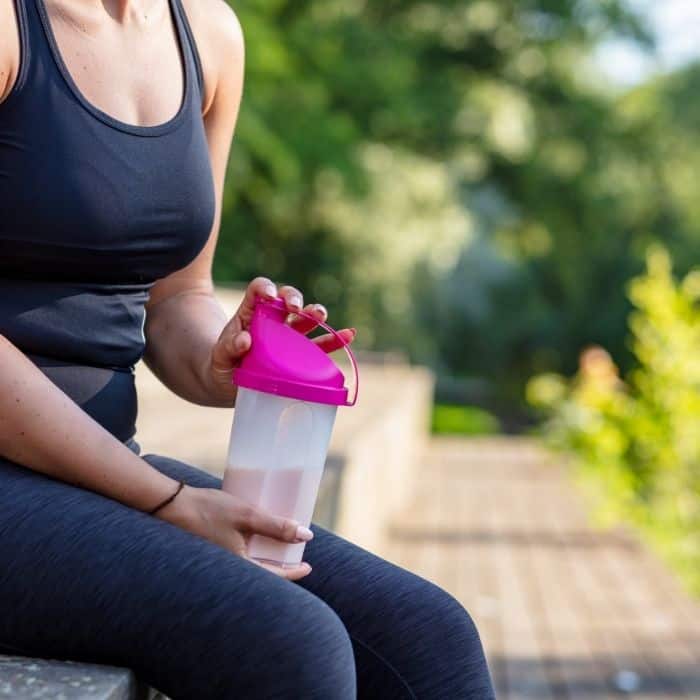
Ergogenic Effects of Caffeine
Caffeine is a natural stimulant that many people turn to when they need more energy.
It’s estimated that 80% of the world’s population consumes a caffeinated product each day, and this increases to 90% for adults in America.
Caffeine is also a popular (and the most studied) sports performance ergogenic aid, that many athletes and active individuals use in order to achieve an energy boost before or during exercise.
This may be one reason why drinking coffee before running is popular.
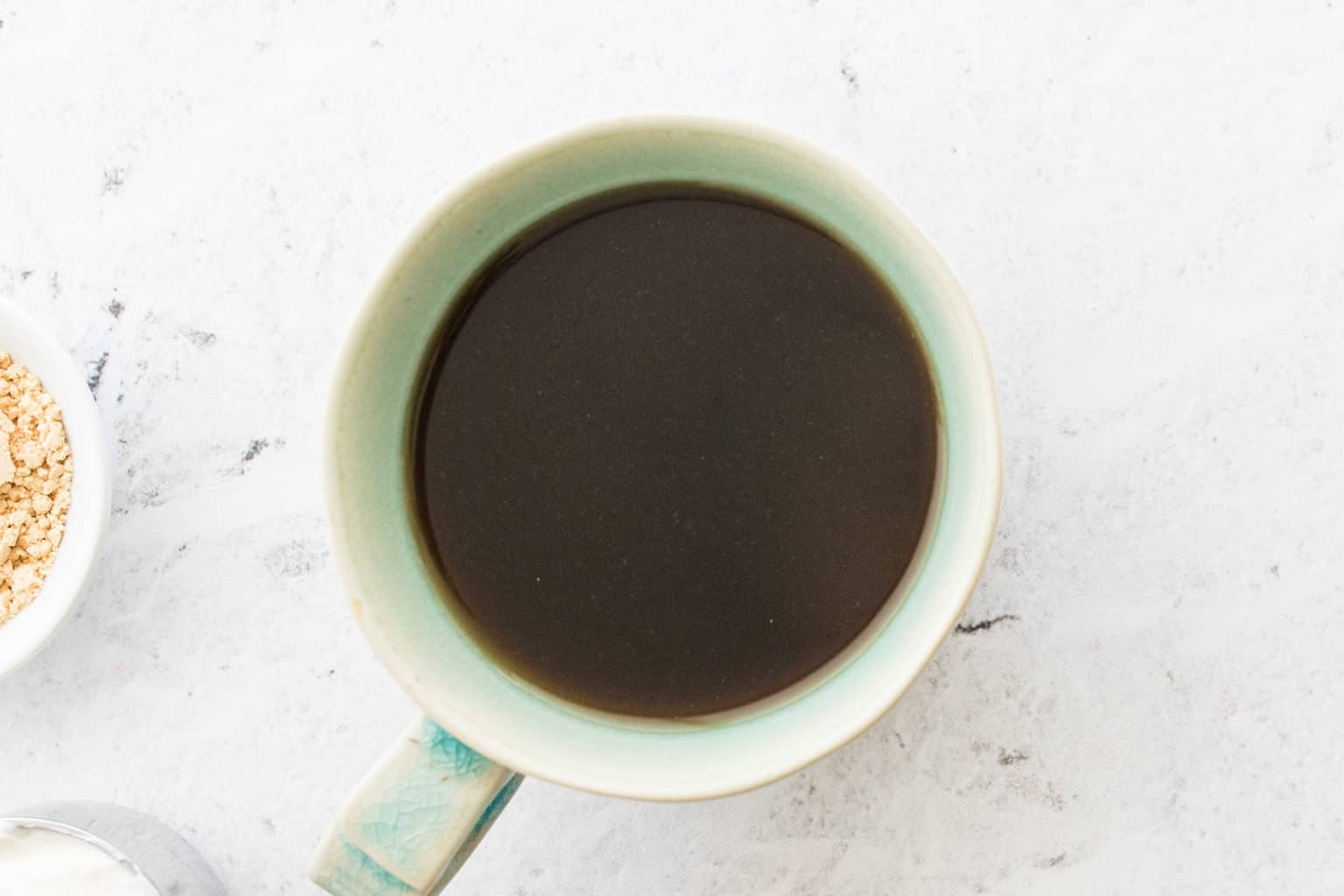
Sources of Caffeine
Caffeine is most commonly found in coffee, tea, soft drinks, energy drinks and cacao plants.
I also love it in a peanut butter coffee smoothie, which is great post-workout!
Amount of caffeine per 8-oz serving:
- Espresso: 240-720mg
- Brewed Coffee: 95-200mg
- Energy Drinks: 50-200+mg
- Brewed Tea: 40-120mg
- Soft Drinks: 20-40mg
- Decaf Coffee: 3-12mg
Caffeine is also found in some foods, such as dark chocolate (1 oz. contains about 5-35mg caffeine) and caffeinated energy gels (40-50mg).
Caffeine Running Gels
Most of the best running gels have caffeinated products available.
Some of the common caffeinated energy gels and products include:
- Honeystinger (gels and chews)
- Clif Shot Energy Gel
- Gu Roctane Energy Gels (caffeine varies by flavor)
- Huma Plus
- Science in Sport Energy Gel

Caffeine may also be in many of the sports chews on the market. Here’s a great breakdown of the best chews for running.
You can also get caffeine pills, which generally have around 200mg of caffeine per 1 tablet.
Beware – caffeine is also common in some drugs, like cold and pain medications.
If you’re someone who is sensitive or has gut issues, make sure to check the label on everything you’re eating and taking in. It can add up!
Does Caffeine Before Running Improve Performance?
Caffeine before running may improve performance, due to its role as a central nervous system stimulant. Caffeine may enhance exercise performance by improving muscle contractions, increasing tolerance to fatigue, and improving mental sharpness.
It may also cause a decrease in the perceived effort of exertion (aka how hard the exercise feels). Beet juice is also known to help with this by increasing the flow of oxygen. Hence, why beets for runners are so great.
There is also solid evidence that consuming caffeine prior to exercise has been shown to improve endurance capacity, improve alertness and reaction time. This is why caffeine and running performance may be linked.
Caffeine may improve your mood, memory, and brain function by increasing dopamine and norepinephrine. There may also be a lower risk of depression in people who consume caffeine.

Should I Drink Coffee Before Running?
Coffee before running can be very helpful, for some. Some studies have found that time of day is a factor in the effects of caffeine as an ergogenic aid.
Research has indicated that morning caffeine ingestion increased performance more so than an evening exerise session.
Mora-Rodríguez R, Pallarés JG, López-Gullón JM, López- Samanes Á, Fernández-Elías VE, Ortega JF. Improvements on neuromuscular performance with caffeine ingestion depend on the time-of-day. J Sci Med Sport. 2015;18(3):338–42.
This is in line with our circadian rhythm too. We’re more likely to want caffeine in the morning before being alert all day, rather than wanting it at night.
Another study found that caffeine enhanced performance in the morning but not in the evening. There were also more adverse side effects reported with evening ingestion of caffeine (more on this below).
You may have heard or are wondering about whether coffee before running burns more fat – this is not a reason to have coffee before a run and there’s no evidence to support this.

How Much Caffeine Should You Drink Pre Workout?
The pre-workout caffeine amount recommendation will vary per person.
Research shows that 3-6 mg/kg of body weight of caffeine ingested 60 minutes before a workout is recommended.
This is highly individualized and if someone is new to trying caffeine before a workout, I would recommend they start with a smaller amount and see how it affects them first.
There’s a lot to consider in terms of GI distress (aka runners stomach), which we will discuss shortly.
As mentioned earlier, caffeine comes in many forms such as coffee, sports drinks, energy drinks, gels, tablets, powders, chewing gum, and coffee beans.
Looking for a plan for caffeine before a race? Make sure you practice and fit it into your race day nutrition plan!

I also recommend taking caffeine with food. You want to practice what to eat the morning of a race.
Consuming caffeine in an energy drink or energy gel form may provide an additional pre-workout benefit through enhancing glucose absorption.
Studies also show that caffeine in moderation does not cause dehydration or electrolyte imbalance. More on electrolytes for running here.
More on that in my ebook, Intuitive Eating for Runners.
A SPORTS DIETITIAN IN YOUR POCKET?!
This is the sports nutrition resource you’ve been missing in your training. It can help make sure you’re eating enough for performance and recovery. – grab it now!
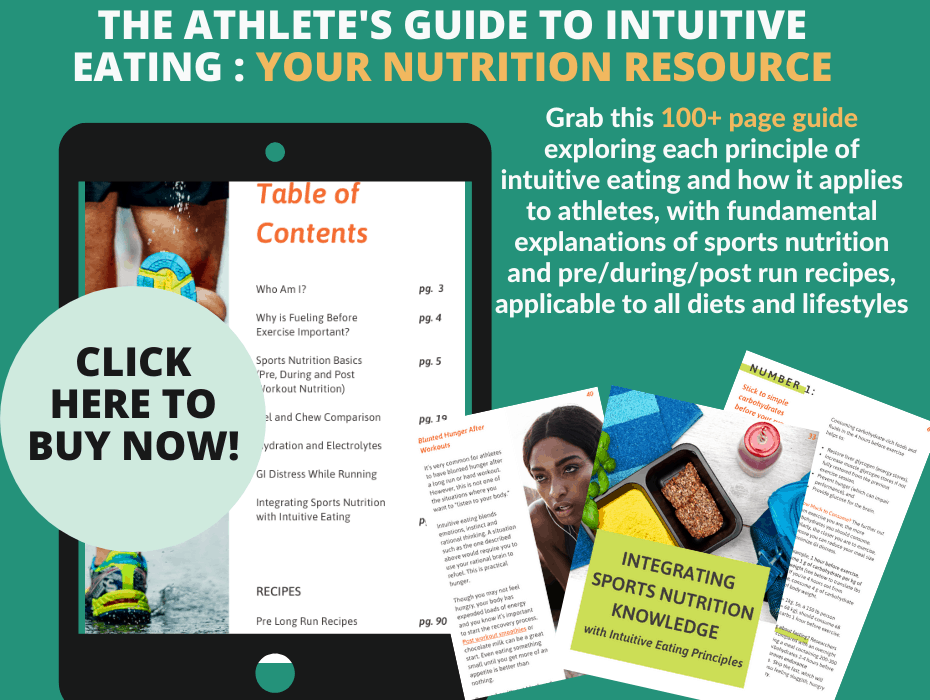
Is Caffeine a Banned Substance? (How Much is Safe?)
The USDA considers a daily intake of 400 mg of caffeine to be safe.
This is equal to 2-4 cups of coffee per day. However, this should be spread out throughout the day, not taken all at once.
In fact, caffeine, in high amounts, is considered a banned substance by the NCAA.
A urinary caffeine concentration above 15 micrograms per milliliter (which corresponds to ingesting about 500 mg right before competition) may result in a positive drug test for NCAA (collegiate) athletes.
Potential Risks of Caffeine for Athletes
As described below, taking too much caffeine can be detrimental and is not advised. While caffeine can help support running, we don’t want your running to depend on it.
If you literally feel like you are running on caffeine, here’s a good article on how to slowly reduce your caffeine intake.

Side Effects of Caffeine
- It is banned by the NCAA, as previously mentioned
- Caffeine consumed without adequate fluids can negatively affect thermal regulation in athletes, especially in hot environments. Summer hydration tips for running are so important!
- The side effects of consuming caffeine, however, may include anxiety, jitteriness, rapid heartbeat, headaches, GI distress and stomach pain after running, and insomnia. Therefore, it is recommended to limit caffeine intake 4-5 hours before bedtime to avoid it interfering with sleep.
- If interfering with sleep, caffeine may impact the recovery that occurs overnight post-workout, since sleep is important for muscle recovery.
- It can be addictive.
- Caffeine may be hidden in many products and the amounts included may not always be disclosed, or it may contain more or less than states. Some products may also contain other stimulants, so it’s important to be cautious when consuming supplements of any kind.
- Caffeine may also increase blood pressure for up to 3 hours in people with high blood pressure.
One study published in the Journal of Clinical Sleep Medicine found that 400 mg of caffeine, ingested 6 hours prior to bedtime, disrupted sleep quality, reduced sleep duration, and increased sleep latency.
Drake, C., Roehrs, T., Shambroom, J., & Roth, T. (2013). Caffeine effects on sleep taken 0, 3, or 6 hours before going to bed. Journal of clinical sleep medicine : JCSM : official publication of the American Academy of Sleep Medicine, 9(11), 1195–1200. https://doi.org/10.5664/jcsm.3170
This is an important consideration if a workout or competition is in the evening and therefore, caffeine was consumed at a time that will likely carry over into bedtime.
While caffeine consumption is generally recognized as safe, it is considered habit forming. You may know this from always “needing” your morning cup of joe.
How Caffeine Metabolism May Affect You
How caffeine is metabolized is an important thing to consider. It is thought that genetics plays a role in how one’s body metabolizes caffeine, and therefore the effect it may have on the individual.
The half-life (amount of time it takes for half of the caffeine you consume to leave your body) of caffeine averages 3-7 hours in adults.
Individuals that metabolize caffeine quickly may experience a more beneficial effect of caffeine as an ergogenic aid pre-exercise.
Those that metabolize caffeine slowly may not experience the benefits of caffeine as an ergogenic aid, and it may, in fact, have a detrimental effect on performance.
While most research studies on caffeine as an ergogenic aid have been conducted on male individuals, there is some evidence that females may have more variables to consider.
This includes the use of oral contraceptives, as well as differences in the menstrual cycle, which may alter the speed at which caffeine is metabolized.
For example, oral contraceptives may increase the half-life of caffeine to 10 or more hours.
It is suggested that, in general, females may not metabolize caffeine as quickly as males.

Why Coffee Makes You Poop
In addition to coffee jumpstarting your day, mood, and energy levels, it may also jumpstart your colon, resulting in a bowel movement.
One study found that 29% of participants needed to use the restroom within 20 minutes of drinking a cup of coffee.
This may be due to the fact that caffeine can activate contractions in your colon and intestinal muscles. This may also be due to coffee-specific compounds that may stimulate your bowels.
Another thing to keep in mind if you are drinking coffee before running!
You May Also Like

References
Drake C, Roehrs T, Shambroom J, Roth T. Caffeine effects on sleep taken 0, 3, or 6 hours before going to bed. J Clin Sleep Med. 2013;9(11):1195–200.
Mora-Rodríguez R, Pallarés JG, López-Gullón JM, López- Samanes Á, Fernández-Elías VE, Ortega JF. Improvements on neuromuscular performance with caffeine ingestion depend on the time-of-day. J Sci Med Sport. 2015;18(3):338–42.
Pickering C & Grgic J. Caffeine and Exercise: What Next? J Sports Med. 2019;49:1007-1030.
Stephens MB. Ergogenic aids: powders, pills and potions to enhance performance. Am Fam Physician. 2001 Mar 1;63(5):842-3. PMID: 11261860.
Support Bucket List Tummy

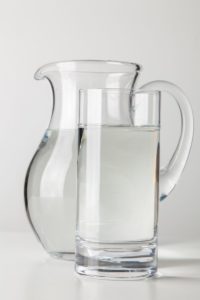
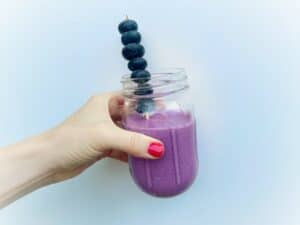

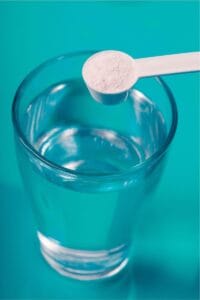

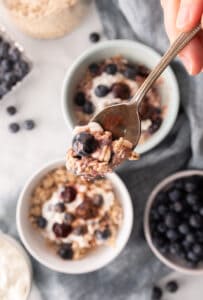





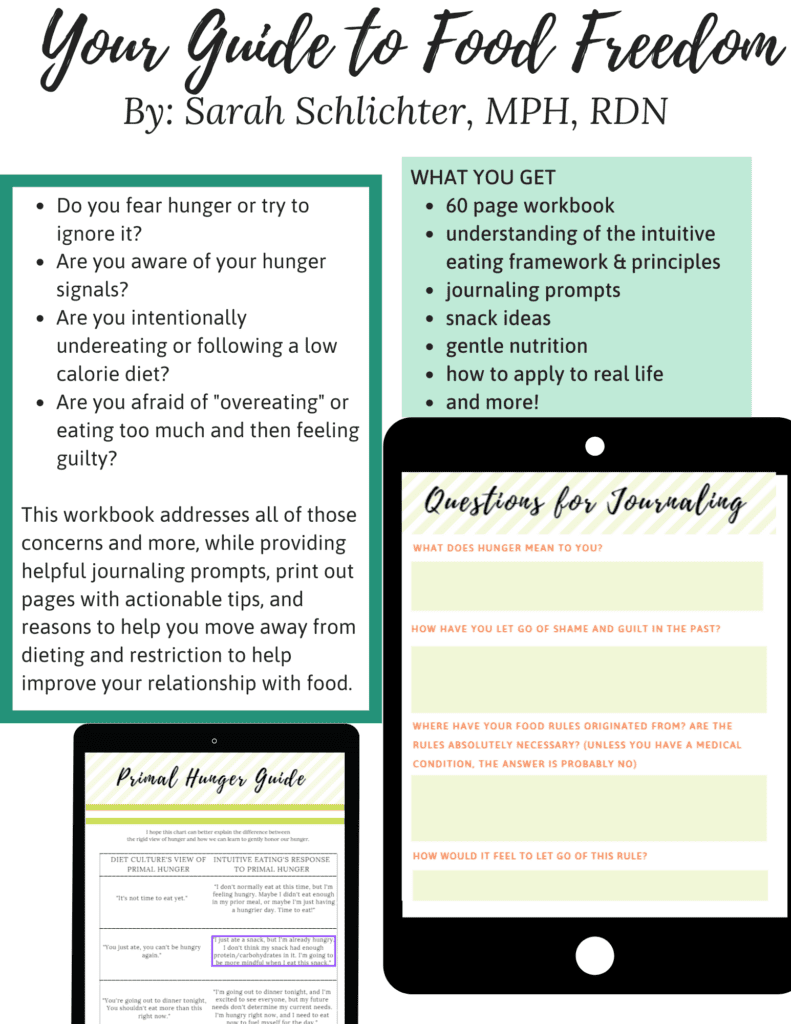










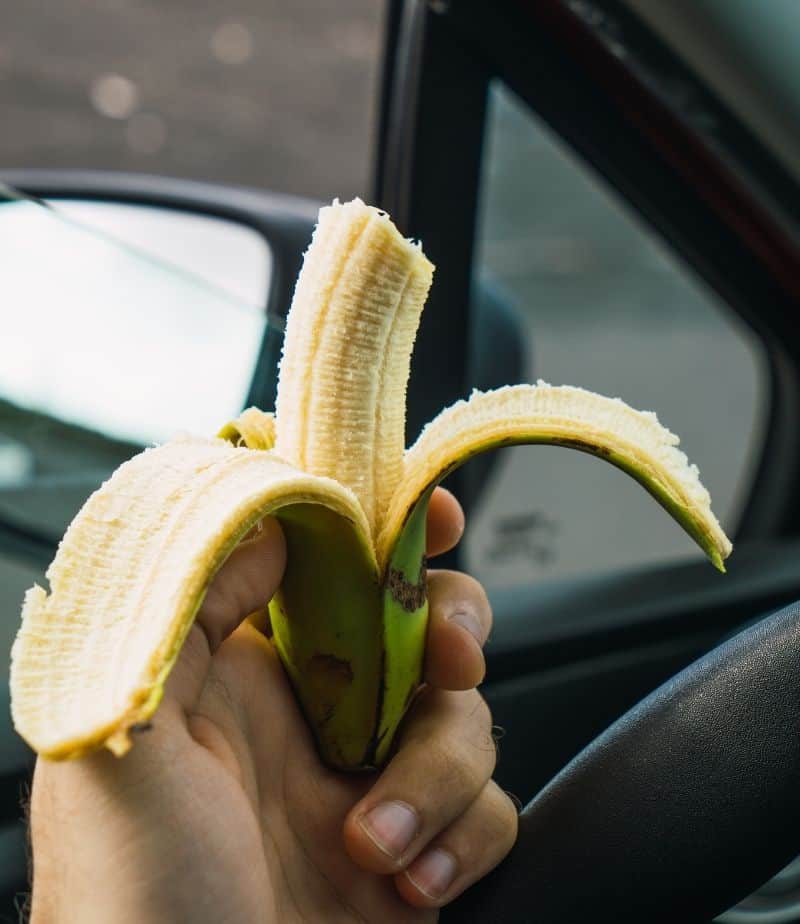

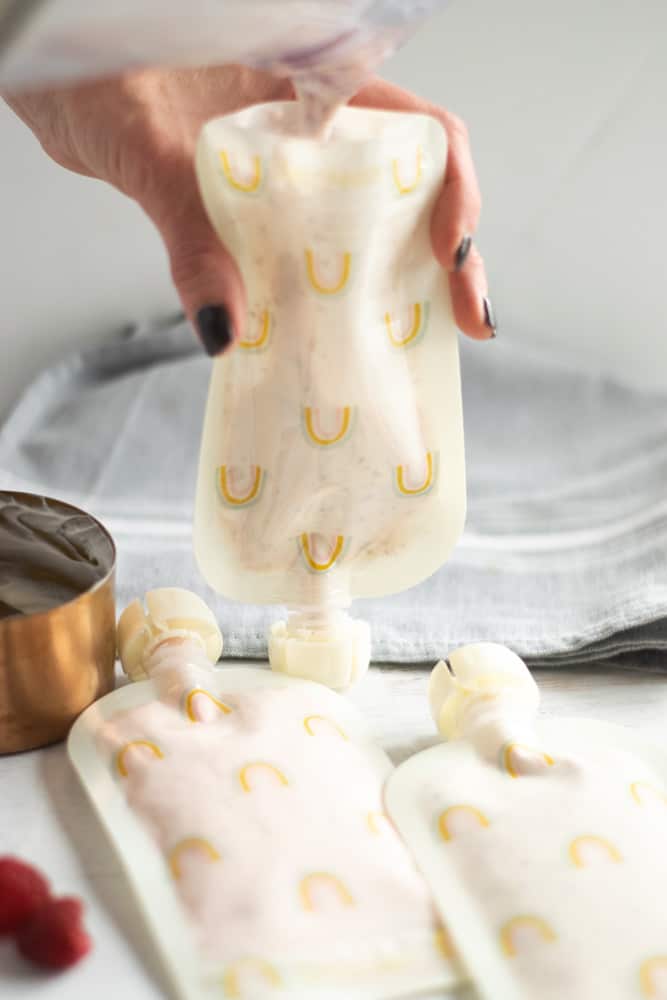


Like This Content?
Support Bucket List TummyImwould never recommend you drink coffee if you will soon be out where there is no bathroom…
I totally understand people who drink coffee or tea before runs but I always wonder how they have the time to brew it and let it cool down enough to drink haha.
Another great post since you look at evidence but make it so easy to understand!
Thanks, Maureen!